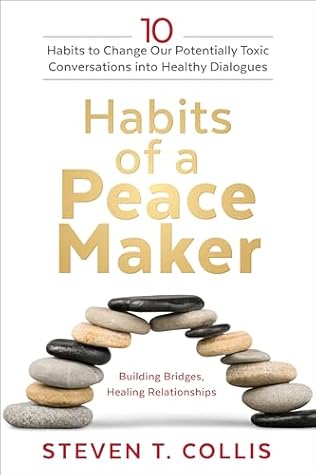Kindle Notes & Highlights
Read between
July 8 - July 9, 2025
But freedom to differ is not limited to things that do not matter much. That would be a mere shadow of freedom. The test of its substance is the right to differ as to things that touch the heart of the existing order.
Most of us need to recognize that, most of the time, we don’t know what we’re talking about.
The statistician Nassim Nicholas Taleb calls all those unread books of mine an “antilibrary.” The antilibrary, he argues, combats our natural human tendency to overestimate what we know.
For most of us, the intensity of our opinions corresponds with how little we know. In other words, when we know almost nothing about a subject, we tend to have strong opinions about it. Later, as we come to realize how ignorant we are, our opinions soften.
when we tend to judge others, we are often doing so with just a fraction—often less than one percent—of the available information. Recognizing our lack of knowledge can keep us from
You have begun by acknowledging your own lack of knowledge.
And even if you are an expert on a broad subject, you will not be an expert regarding someone else’s experiences.
“If I have seen farther [than others], it is by standing on the shoulders of giants.”
Newton knew an important principle: by allowing others to inspect our thinking and our conclusions, we come closer to the truth. It is scary and gut-wrenching, but it identifies weaknesses where we are wrong. It inspires new thoughts in others where we are right.
For all the good smartphones and computers do for us, those who create them need you addicted to them. They are meant to imprison you.
For the first time, the majority of information we consume as a species is controlled by algorithms built to capture our emotional attention. As a result, we hear more angry voices shouting fearful opinions and see more threats and frightening news simply because these are the stories most likely to engage us. This engagement is profitable for everyone involved: producers, journalists, creators, politicians, and, of course, the platforms themselves.
The algorithms running our feeds offer us even more similar stories. We share those, and the cycle starts over again. Soon, the only news we read relates to what we have already shared, and if it is about a controversial subject, it gets us angrier and angrier. In time, we cannot comprehend how anyone could see the world differently than we do. The only possible explanation must be that they are evil or fools,
One habit they develop is being wary of misinformation and recognizing that they, just like everyone else, are susceptible to it.
we are too often in too much of a hurry to truly process all the news with which we are bombarded online. So we tend to make decisions with our intuition and gut, instead of by processing information to see if it’s accurate.
They also spend time seeking dopamine hits from sources other than technology.
One important habit peacemakers master is freeing themselves from that endless cycle and instead pursuing what the masses of humanity dreamed about for so long. They engage in activities like prayer, meditations, walks, fishing, reading long-form works like books (that includes listening to them), talking with loved ones, going to church, journaling, practicing mindfulness, enjoying peaceful music, serving others, observing nature, visiting museums, or learning from lectures available in person or online.
All of this is meant to emphasize how dangerous catchphrases and heuristics can be. They are short and catchy, so activists and marketing gurus love them. Like any heuristic, they allow us to align ourselves with a cause without having to do the heavy work of thinking. And that is precisely why they are so dangerous for productive dialogue—we adopt them readily, considering ourselves informed. In truth, they prevent us from engaging in any real learning.
Peacemakers will. They will recognize that no one is immune to the manipulation of the modern information marketplace. It affects us all, unless we choose to break free from it.
The next time you find yourself in a conversation with someone and you are debating a fact that could be easily searched by punching a few words into your phone, stop fighting, punch the words into your phone, then move on.
We are not driven by emotion when we analyze someone else’s thoughts, but our emotions cloud our judgment when we are dealing with our own thinking.
What is important is that he is also treating those who think differently with respect.
Asking sincere questions helps others better understand their own positions and it helps you better understand others’ motivations. What you will usually find is (1) people are often not as firm as they think they are in their own views; and (2) they generally hold good motivations.
If we limit ourselves to asking questions only of those people we deem worthy, we will be depriving ourselves of unique and potentially helpful perspectives that can refine our thinking and open our minds to solutions we had never considered.
The bottom line is that we tend to favor, hunt for, remember, and interpret information in a way that confirms and supports the beliefs we already have.


